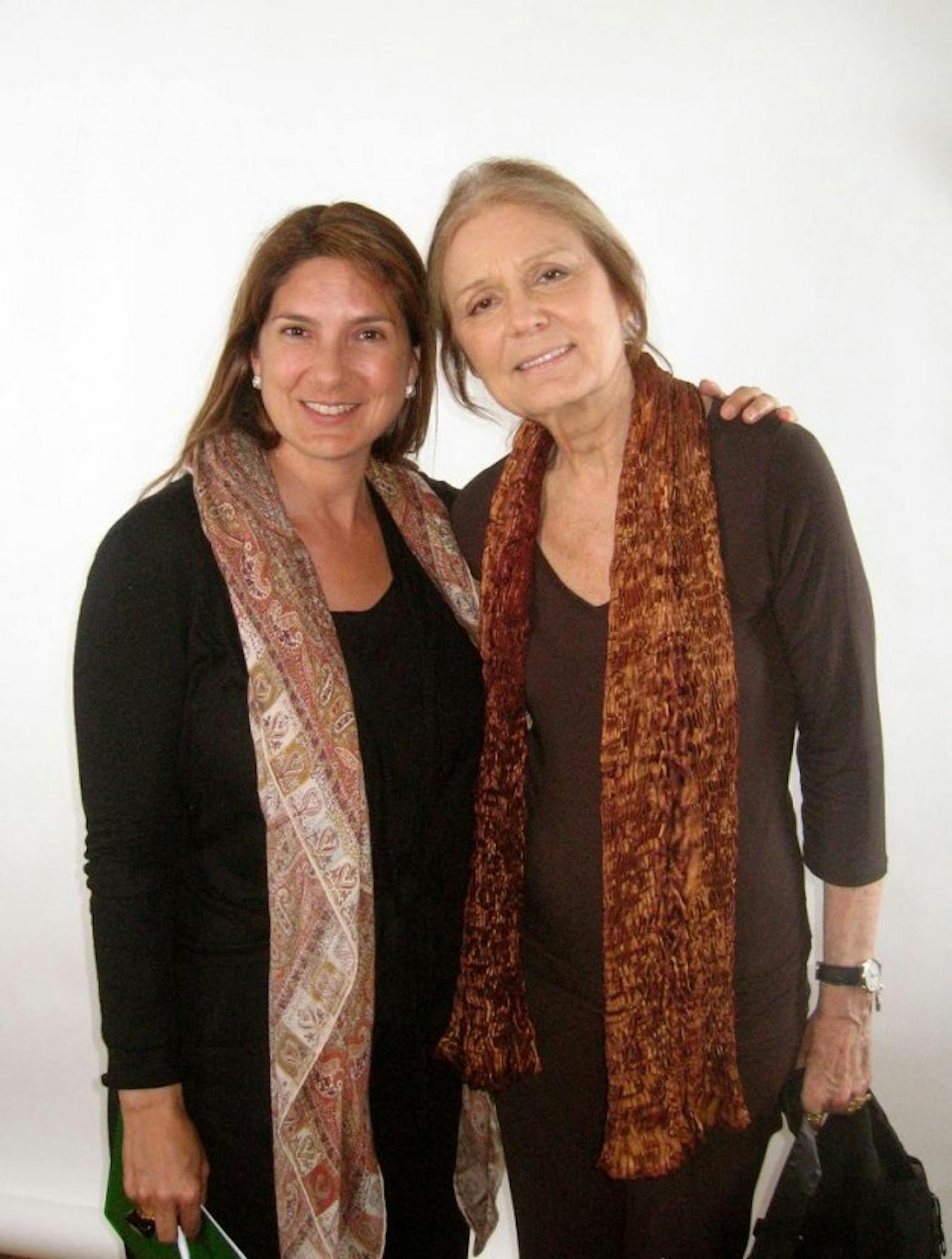Miss' film educates about media biases
The sad reality is many people do not even recognize the inferior status of women in this country, as it has become a normalized aspect of quotidian life. Young girls are growing up in a culture where empowered, intelligent and influential women are underrepresented and girls are instead led to believe, based on the media's representation of women, that the most important aspect of a woman is her beauty.
One may believe this is problematic solely for women, but that is not the case. The new documentary film Miss Representation, written, produced and directed by Jennifer Siebel Newsom, provides a thorough and engaging lens into this culturally constructed phenomenon.
Newsom informs the audience at the beginning of the documentary that she began thinking critically about the state of women in our society upon receiving the news that she was pregnant with a baby girl. She is also quite candid in the documentary about her own struggles as a female, such as her battle with an eating disorder. However, the majority of the documentary features highly influential individuals from politics, the media and academia, such as Nancy Pelosi, Cory Booker, Katie Couric, Jane Fonda, Geena Davis, Rachel Maddow, Paul Haggis and Jean Kilbourne, among others. Students are also represented in the film as they explain how they have felt the negative effects of the media's representation of women.
A vivid example shown in the film of a powerful and successful woman who has been underemphasized by the media is the 60th Speaker of the House from 2007 to 2011, Nancy Pelosi. Pelosi, the first woman to ever hold this office, was not featured on any magazine covers, while current Speaker of the House, John Boehner, has been featured on numerous covers including Time Magazine, Newsweek and The New Yorker even before taking office.
Moreover, when women are in high-powered positions, the media focuses on their appearance far more often than the issues that truly matter. For example, when Secretary of State Hillary Rodham Clinton was running for president in 2008, the media dwelled on her decision to wear pantsuits; at the same time, the media ogled Vice Presidential Nominee Sarah Palin for her sex appeal. Additionally, when Katie Couric was the first female ever to host the CBS Evening News, the criticisms surrounded whether she was showing "too much leg" or questioning her wearing "winter white."
In addition, journalist Lisa Ling is interviewed in the film and admits to purposely wearing non-sexy clothes on television as to not distract from the stories being covered. Nonetheless, most journalists on television today are highly sexualized with come-hither makeup and what Couric describes as "tousled hair."
There is a push for "infotainment"—information provided in a most diverting light that does not have the journalistic demand for truth—as it is cheap to produce and viewers obviously seem to devour it.
The documentary showed a famous clip of journalist Mika Brzezinski refusing to discuss Paris Hilton's release from jail on the television show Morning Joe. Brzezinski understood that there was much more important news to be covered that day, despite her producer pushing her to discuss Hilton.
Men are fed false images of women just as women are. Famous feminist speaker and activist Jean Kilbourne, legendary for her Killing Us Softly series about advertisements' effects on societal views of female beauty, explains that men judge women harshly due to the fact that they want something that does not exist in reality. What is more, Kilbourne explains that women are highly objectified in advertisements, making it easier for men to commit violence against them as they are seen not as human beings but simply as objects.
Jackson Katz, famously known for his documentary, Tough Guise, also speaks to this in Miss Representation, as he believes the association between men and violence is an extremely disturbing effect of our cultural constructions of gender. Additionally, Cory Booker, mayor of Newark, N.J., explains that, thanks again to our society's construction of gender, men are "emotionally constipated" because they are brought up in a society where masculinity means one cannot show emotions and instead has to be "tough"—among other things.
A major reason why empowered women are not represented in the media is due to the fact that men run the majority of the media. When Pat Mitchell, president and CEO of the Paley Center for Media, first attempted to start an all-women's network, she was turned down because one already existed: Lifetime. However, there are 22 ESPN channels. Director/producer Catherine Hardwicke, best known for Thirteen and Twilight, admits to being turned away from many jobs due to her gender. Former Secretary of State Condoleezza Rice explains that she would often be the only woman in the room but that a female perspective is vital in big decision making and, I would argue, in all arenas in life.
Newsom and her team capture the strife women endure thanks to the media's false representation of them. Interestingly, Siebel Newsom has worked as an actress, in an arena she criticizes. While this does give her firsthand experience of the corruption, it also makes her a player in it. At the same time, the film is so powerful that the well-established patriarch may even be compelled to change his attitude for the good of mankind.
I saw a screening of the film, put on by the Women's Bar Association at Suffolk University Law School in Boston on Oct. 25. If you are interested in seeing the film, it will be at Brandeis in March for the Women Take the Reel Festival, hosted by the Boston Consortium in Women's Studies.



Please note All comments are eligible for publication in The Justice.